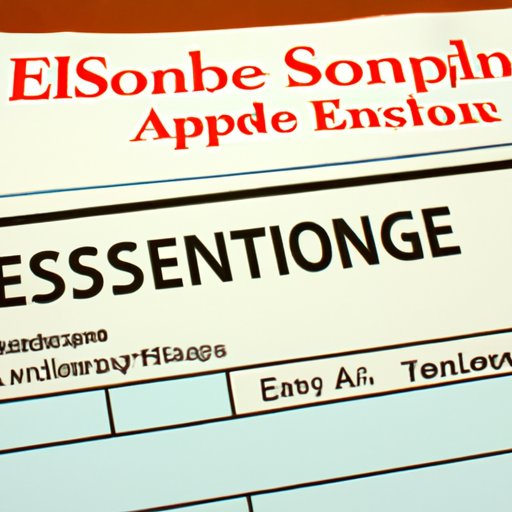Introduction
Singapore is widely viewed as one of the top countries for doing business. The country has a stable economy and a low tax rate, making it attractive for foreign businesses. In addition, Singapore’s strategic location in Southeast Asia also makes it an ideal destination for companies that want to reach out to the region’s dynamic markets. This article will provide a comprehensive guide on how to start a business in Singapore as a foreigner.
Research Singapore’s Regulatory Environment for Foreign Businesses
Before starting a business in Singapore, it is important to research the regulatory environment. Understanding the legal requirements, taxation regulations, and intellectual property laws is essential to ensure compliance with the law. Companies should also be aware of any restrictions or limitations on foreign ownership.
Understanding Legal Requirements
Foreign businesses must comply with Singapore’s legal requirements. This includes registering with the Accounting and Corporate Regulatory Authority (ACRA), obtaining permits from government agencies, and adhering to labour laws. Companies should also be aware of the country’s anti-money laundering regulations and ensure that their activities are in line with these rules.
Analyzing Taxation Regulations
Taxation is another important consideration when setting up a business in Singapore. Companies can benefit from the country’s competitive corporate tax rate, which is among the lowest in the world. However, there are other taxes that businesses must consider, such as value-added tax (VAT) and goods and services tax (GST). It is important to understand the various tax regulations in order to ensure compliance.
Examining Intellectual Property Laws
Singapore has strong intellectual property (IP) laws that protect the rights of businesses. Companies should be familiar with the country’s IP laws in order to safeguard their creations and inventions. This includes understanding copyright, patent, trademark, and other IP laws.

Obtaining a Singapore Employment Pass
If you are a foreigner who wants to start a business in Singapore, you will need to obtain an Employment Pass (EP). The EP is a work visa that allows non-Singaporean citizens to work in the country. To qualify for an EP, applicants must meet certain eligibility requirements.
Eligibility Requirements
The EP is typically granted to foreign professionals, managers, and executives. To qualify, applicants must have a job offer from a Singapore-based employer, a valid passport, and a university degree or professional qualification. They must also demonstrate relevant experience and receive a minimum salary of $3,600 per month.
Applying for a Pass
Once you meet the eligibility criteria, you can apply for an EP through the Ministry of Manpower’s website. You will need to provide supporting documents such as your resume, educational certificates, and passport. The application process can take up to two weeks, after which you will receive your EP.

Setting Up a Company in Singapore
Once you have obtained an EP, you can start setting up your company in Singapore. This involves choosing a business structure, registering your company, and establishing a corporate bank account.
Choosing a Business Structure
When setting up a business in Singapore, you will need to choose the type of entity for your company. The most common types of entities are sole proprietorships, partnerships, and limited liability companies (LLC). Each type of entity has its own advantages and disadvantages, so it is important to research and compare the different options before making a decision.
Registering Your Company
Once you have chosen a business structure, you will need to register your company with ACRA. This involves submitting an online form and paying the necessary fees. The registration process typically takes two to three days.
Establishing a Corporate Bank Account
Once your company is registered, you will need to open a corporate bank account. This will allow you to deposit and withdraw funds for your business operations. Most banks in Singapore offer corporate accounts, so you should shop around to find the best deal.
Choosing the Type of Entity for Your Business
When setting up a business in Singapore, you will need to decide on the type of entity for your company. Each type of entity has its own advantages and disadvantages, so it is important to research and compare the different options before making a decision.
Sole Proprietorships
A sole proprietorship is the simplest and least expensive type of business entity. It is owned by one person and requires minimal paperwork. However, the owner is personally liable for all debts and obligations of the business.
Partnerships
A partnership is owned by two or more individuals and offers flexibility in terms of profits and losses. However, partners are jointly liable for all debts and obligations of the business.
Limited Liability Companies
An LLC is the most popular type of business entity in Singapore. It offers limited liability protection to its owners and is relatively easy to set up. However, LLCs are subject to more stringent regulations than other types of entities.
Identifying Sources of Financing
Once you have established your business in Singapore, you will need to identify sources of financing. This can include government grants and funding, bank loans, and venture capitalists.
Government Grants and Funding
The Singapore government offers various grants and funding programs to support businesses. These grants can be used to finance research and development projects, expand operations, and hire new staff. Companies should research the various grants available in order to identify the ones that best suit their needs.
Bank Loans
Banks in Singapore offer various types of loans for businesses. These include term loans, overdraft facilities, and lines of credit. Companies should compare the different loan options to find the ones that offer the best terms and conditions.
Venture Capitalists
Venture capitalists can also be a source of financing for businesses in Singapore. Venture capitalists are investors who provide funding in exchange for equity in the company. Companies should carefully evaluate any potential venture capitalist investments to ensure they are beneficial to the business.

Developing a Comprehensive Business Plan
Finally, it is important to develop a comprehensive business plan. A business plan should include objectives, financial projections, and marketing strategies. It should also outline the steps needed to achieve the company’s goals and provide a timeline for implementation.
Defining Objectives
Your business plan should include specific objectives that define the purpose of your business. These objectives should be measurable and achievable within a given timeframe.
Making Financial Projections
Your business plan should also include financial projections. This includes estimating your revenue and expenses, as well as forecasting cash flow. Financial projections will help you plan for future growth and make informed decisions about your business.
Outlining Marketing Strategies
Finally, your business plan should include a detailed marketing strategy. This should include plans for advertising, promotion, and brand building. It should also identify target markets and outline the steps needed to reach them.
Conclusion
Starting a business in Singapore as a foreigner requires careful planning and preparation. It is important to research the regulatory environment, obtain an Employment Pass, choose the right business structure, and secure financing. Companies should also develop a comprehensive business plan to ensure success.
(Note: Is this article not meeting your expectations? Do you have knowledge or insights to share? Unlock new opportunities and expand your reach by joining our authors team. Click Registration to join us and share your expertise with our readers.)
